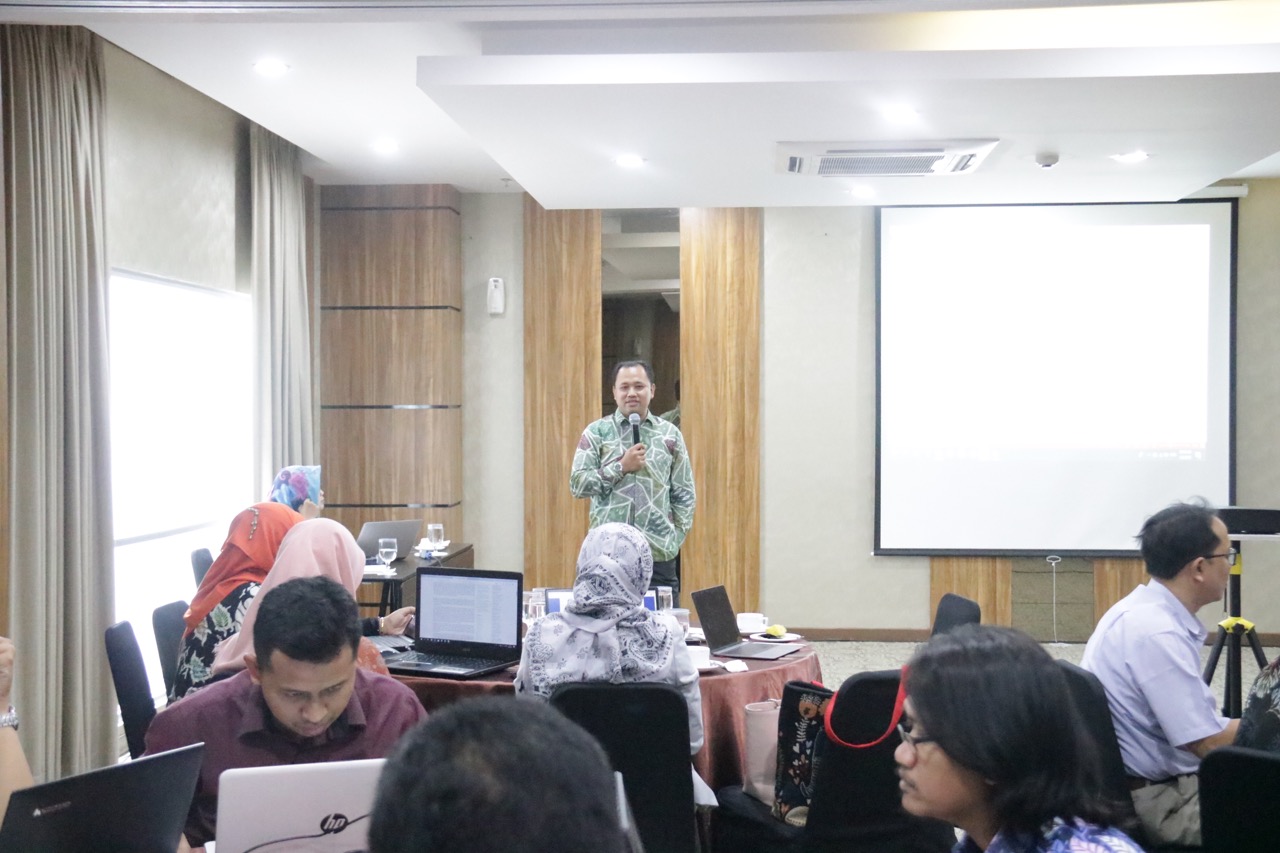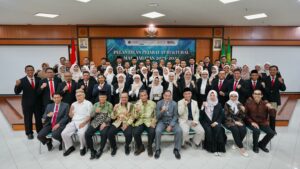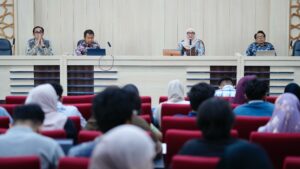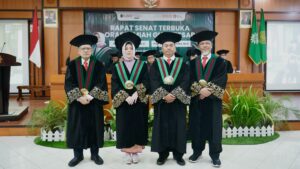Scientific writings are an output of higher education institutions. The writings, then, are compiled in journals to be references for other studies. Thus, the journal credibility should be managed well.
At Journal Camp 2019 conducted by Office of Research, Publication, and Community Service (LP3M) of Universitas Muhammadiyah Yogyakarta (UMY) on Wednesday (6/2) at Grand Serela Hotel, Head of LP3M of UMY Dr. Ir. Gatot Supangkat, M.P. stated that the Journal Camp 2019 aimed to maintain and increase the quality of UMY journals. “We are eager to elevate our quality and quantity. Eight UMY journals are accredited by SINTA (Science and Technology Index) of Ministry of Research, Technology, and Higher Education (Kemenristekdikti). Besides maintaining the achievement, we are seeking to achieve an accreditation for four journals, at least SINTA 2 accreditation, so that the journals can be indexed by Scopus. Thus, accredited journal teams supervise teams whose journals have yet been accredited. The supervision is undertaken to implement journal management arranged by the Kemenristekdikti,” explained Gatot.
“One of the candidates that we encourage to escalate its status is Plantatropika journal of Department of Agrotechnology of UMY. The journal received journal management grants from the Kemenristekdikti. Therefore, it is expected that the journal can raise its accreditation to be SINTA 1,” added Gatot.
Meanwhile, Head of Governmental Study Journal management as well a speaker at the Journal Camp Dr. Phill Ridho Al-Hadi, M.A. declare mentioned what to do to obtain writings as standards. “We have to regularly quest quality journal articles through utilizing university network as research-based department or lecturer associations, alumni network, university partners. Afterwards, assistance teams should be created to give fast responses such as correcting papers as author guideline, following up issues of writings to authors or others,” he contended.
Besides focusing on journal contents, journal management necessitates to focus on other aspects as journal name, a journal publisher, volumes and issues. “Indeed, we have to obey journal ethics. For instance, one of the journal accreditations scoring criteria is based on citations. We may not insist our students to cite their lecturers’ journal articles to increase the number of citations,” emphasized Ridho.







